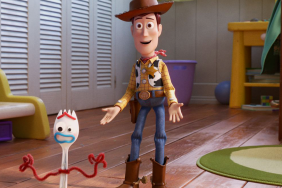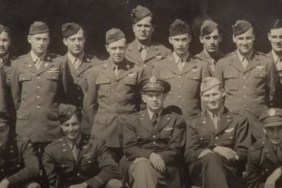
7.5 out of 10
Bridge of Spies Cast:
Tom Hanks as James Donovan
Mark Rylance as Rudolf Abel
Amy Ryan as Mary Donovan
Sebastian Koch as Wolfgang Vogel
Austin Stowell as Francis Gary Powers
Will Rogers as Frederic Pryor
Scott Shepherd as Hoffman
Jesse Plemons as Joe Murphy
Domenick Lombardozzi as Agent Blasco
Dakin Matthews as Judge Byers
Alan Alda as Thomas Watters
Eve Hewson as Jan Donovan
Jillian Lebling as Peggy Donovan
Noah Schnapp as Roger Donovan
Peter McRobbie as Allen Dulles
Billy Magnussen as Doug Forrester
Michael Gaston as Williams
Greg Nutcher as Lieutenant James
Directed by Steven Spielberg
Story:
In 1957, at the height of the Cold War, a Brooklyn painter Rudolf Abel (Mark Rylance) is arrested, accused of being a Soviet spy, and lawyer James Donovan (Tom Hanks) is called upon to defend him as a sign that Abel would get treated fairly by the American justice system. When Air Force pilot Francis Gary Powers (Austin Stowell) is shot down in a spy plane over the Soviet Union, Donovan and the CIA realize that they have a negotiating token in Abel and Donovan is asked to act as a mediator in the exchange.
Analysis:
For their fourth movie and first in over ten years, director Steven Spielberg and actor Tom Hanks tackle a historical drama that probably owes more to Schindler’s List than it does to Saving Private Ryan or even Spielberg’s last political thriller Munich. That’s because Bridge of Spies is very much a slow burn, which often takes an excruciating amount of patience to start paying off, although it does pay off by the end.
Mind you, I’m a major fan of spy movies however far they veer into the high-tech action world, although it’s hard not to feel that movies like this and the recent Man from U.N.C.L.E. might feel dated to those who weren’t alive during the ‘50s and ‘60s. There’s plenty of correlations one can see between what’s going on in Bridge of Spies and what’s going on today in the relations between Russia and the USA, although even some of those references seem dated.
It takes some time for the movie to really find its footing, because the general plot involving New York lawyer James Donovan (Hanks) taking on the case no one wants by defending a Russian spy at the height of the Cold War, is not something that particularly pops, although we do get to see how Americans feel about spies and Russians at a time when a nuclear war seemed inevitable. Donovan does his best to keep Abel from getting the death sentence, suggesting that he might come in handy at a later time, which proves to be the case when an American pilot is captured in the Soviet Union.
When Donovan agrees to go to East Berlin to arrange a prisoner swap, that’s when the film starts to pay off on what’s been set-up, not because there’s isn’t a ton of the tension or intrigue as one might expect from this sort of film. Instead, that’s where we see Donovan at his best, trying to negotiate both with the Soviets and the East Germans, who want to be taken more seriously as a world power, especially by the United States. When the German Democrat Republic enters the mix (represented by Sebastian Koch), it also becomes more evident how complicated the politics were of the time, and they have a definite chip on their shoulder that they’re involved with getting Abel back to the Soviets.
As might be expected, Tom Hanks really holds this thing together and keeps things surprisingly light and entertaining – if you’re a fan of what he does, then you’ll probably appreciate it more than those who can’t stand Hanks. Fortunately, he’s working from a great screenplay where it’s obvious that some of the more clever contributions come from co-writers Joel and Etan Coen. Hanks is in almost all of the scenes, except the few times when it cuts away to others like a group of Air Force pilots or a college student in East Berlin for reasons that become clearer as the film goes along.
There aren’t a ton of stand-out performances otherwise–even actors like Alan Alda and Amy Ryan are underused–with the exception being Mark Rylance as Abel, a fairly low-key performance but one that’s quite effective especially in his scenes with Hanks. Rylance will more than likely be the one that stands out amongst awards voters, because he makes more out of the character than anyone else might.
No one can watch this movie and not agree that this is what a film made by one of the world’s top filmmakers looks like, since Spielberg and his team do such a fantastic job recreating the Brooklyn and Berlin of 1957–especially the building of the Wall–shooting the film with shadowy lighting and making every scene look gorgeous as well as keeping it appropriate to the period. It almost makes up for the film’s incredibly slow pace, because everything looks so lovely, but it does take its time before the narrative and storytelling catches up to the film’s lush visuals.
The movie works better if you don’t go into it expecting some sort of Jason Bourne movie but rather as a historic drama that tries to shine the light on a man who played an important part in U.S. diplomatic relations during the Cold War.
The Bottom Line:
While it takes some time to make its snail’s pace seem worthwhile, Bridge of Spies ultimately confirms that when it comes to historic dramas, Steven Spielberg is still the best.
Bridge of Spies just premiered at the 53rd New York Film Festival and will open nationwide on Friday, October 16.
Bridge of Spies
-
Bridge of Spies

-
Bridge of Spies

-
Bridge of Spies

-
Bridge of Spies

-
Bridge of Spies

-
Bridge of Spies

-
Bridge of Spies

-
Bridge of Spies

-
Bridge of Spies

-
Bridge of Spies

-
Bridge of Spies

-
Bridge of Spies

-
Bridge of Spies

-
Bridge of Spies

-
Bridge of Spies

-
Bridge of Spies

-
Bridge of Spies

-
Bridge of Spies

-
Bridge of Spies

-
Bridge of Spies

-
Bridge of Spies

-
Bridge of Spies

-
Bridge of Spies

-
Bridge of Spies

-
Bridge of Spies

-
Bridge of Spies

-
Bridge of Spies










